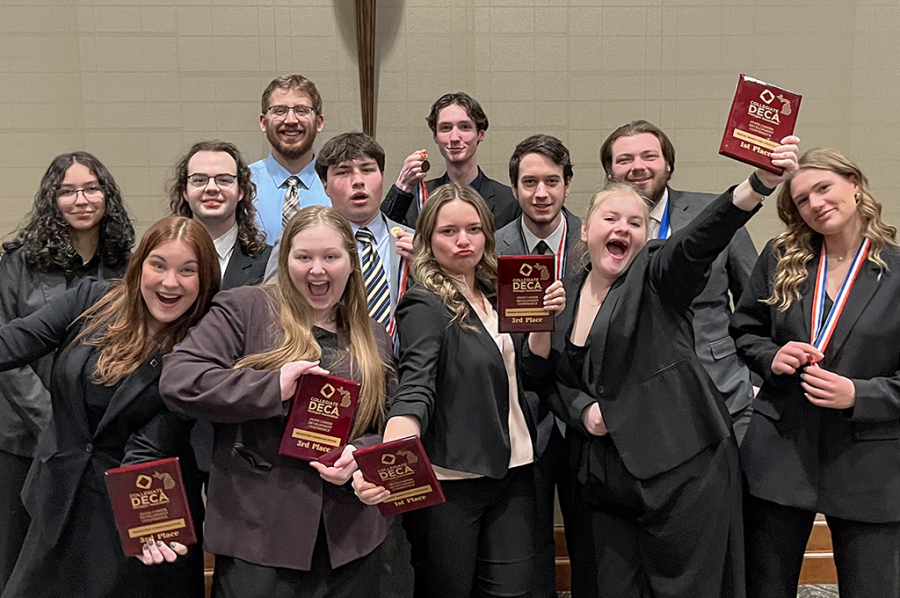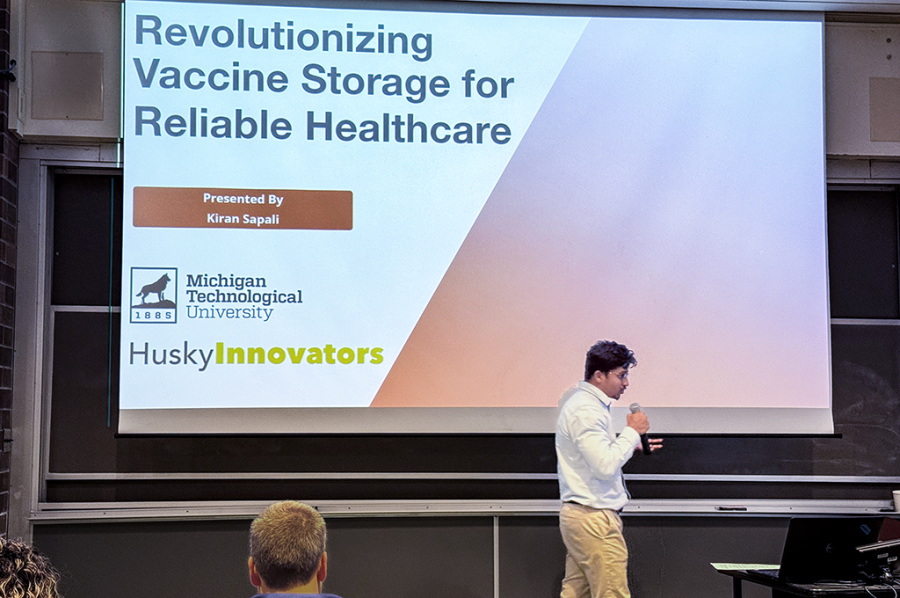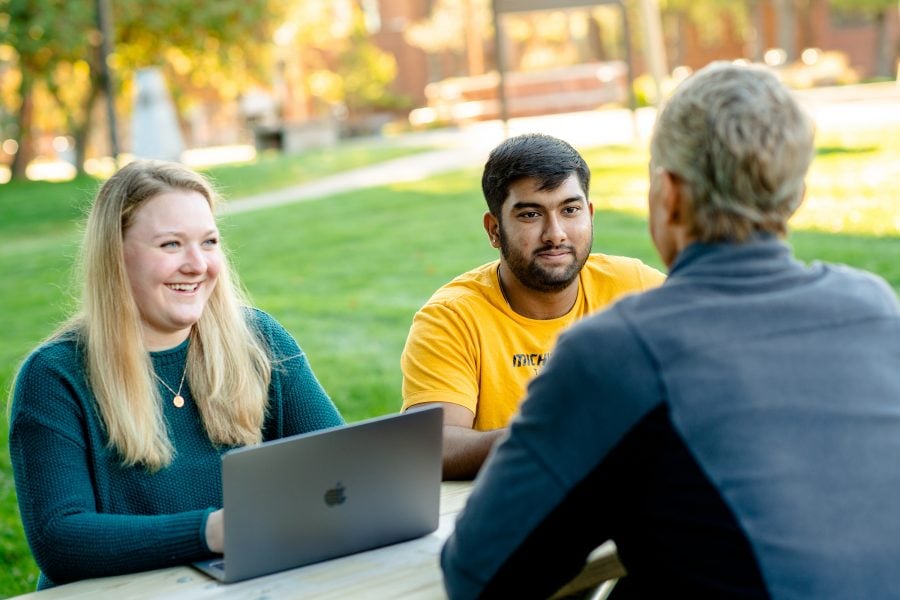
The Michigan Tech College of Business Collegiate DECA Chapter brought a record 13 students to the state Career Development Conference in Bay City, Michigan last month, where nine were recognized as finalists. Five Business Huskies were top-three competitors and now move on to global competition at the International Career Development Conference in San Francisco, California in April.



